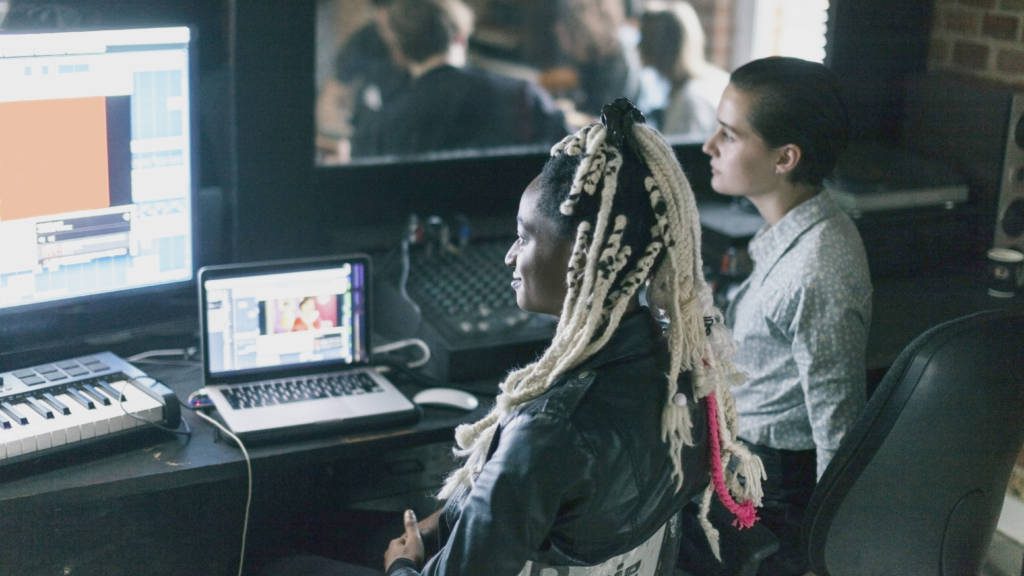Filling out the FAFSA® (Free Application for Federal Student Aid) makes you eligible for multiple federal financial assistance programs, including work-study.
Work-study provides part-time jobs for students with demonstrated need, which are often (but not always) located on campus. Unlike other forms of aid, work-study requires some research and applications on your end. You’ll need to find a job on your own, and you may be applying alongside fellow students. As you consider where to apply, it can be helpful to think about how work-study can enhance your college experience. Here are some things to consider.
Understand Your Work-Study Options
Even though there may be a plethora of work-study positions available, you need to find the right job for you. And there are some restrictions. You will have a cap on how much income you can make, which affects how many hours you’re eligible to work. Some jobs, such as lab assistants, may be competitive. But there are other work options too, that you could either do alongside or instead of work-study. These include internships, gig work, or other part-time jobs.
Look for a Job That Fits with Your Schedule
One huge benefit of work-study, besides the paycheck, is convenience. You can squeeze in hours between classes, and supervisors may be understanding about the need to shift hours around during finals week. You can also look for jobs that align with your study and social schedule. For example, you could find an early morning job at the fitness center, or work in the evenings at the library. Knowing when you would like to work can help you narrow down your options.
Consider Off-Campus Jobs, Too
While most work-study positions may be on campus, some nonprofits and community organizations can use funds to pay work-study students. Ask around to learn about these opportunities. This can help you feel like you’re working in “the real world” and can also help ladder into your goals and interests. For example, it’s not uncommon for work-study funds to be earmarked by community centers to hire coaches and tutors. If you like working with kids, this can be a win-win.
Consider Looking for a Job in Your Field
David Dollins, associate vice president for Enrollment Management at Clarion University of Pennsylvania, suggests looking for something that ties in with your major. If you know what career you want to pursue, even better. Find a job that gives you experience in that field. For example, if you’re hoping to work in media or communications, a work-study position at a radio station could be a good fit. Or if you’d like to pursue a career in theater, you could look into gigs at the box office that may come with perks like free shows and exposure to potential mentors. You can also talk to your professors. You might be able to get a work-study role as a research assistant or as administrative support in your major’s departmental office.
Target Your Interests
If you don’t have a clear sense of your college major, your work-study job can still help you pursue your future career goals, even if they’re a bit hazy. Esther Gonzalez Freeman, a higher education administrator and owner of Empowered Campus, advises undecided students to find a work-study position that aligns with their current interests.
Erika Jelinek, now a high school librarian in Portland, Oregon, did just that and had great success. She selected a work-study position in the Skidmore College library. “When I started working at the library my sophomore year, it never occurred to me that library work would eventually become my career. I sought it out because I loved libraries and it seemed like it would be a nice working environment, something that I would actually enjoy and be able to do while also being in school full-time.” The experience paved the way for her career in library sciences.
Keep Your Options Open
Even if your work-study position doesn’t feel like a direct stepping stone to a career, the contacts you make while working can be helpful in your future job search process. For example, a deli counter server in the dining hall might not seem glamorous at first glance. But it gives you a chance to work under pressure, interact with the public, and develop amazing sandwich-making skills. Dollins advises students to be go-getters in their work-study roles, no matter the position. If you work hard and make a good impression on your managers, you “will gain professional references to help in securing that first job out of college,” he says.
Develop Your Skills and Network
Work-study jobs are also a way to develop skills that aren’t taught in a classroom. Your position could teach you “soft skills in communication, organization, networking, and other important developmental areas,” says Dollins. Acquiring these skills before you hit the full-time workforce will put you leaps and bounds ahead of other entry-level workers.
College students can also make the most of their work-study experience by finding a mentor. Having a solid relationship with an experienced professional will be beneficial throughout your career. A mentor can help with guidance on issues like salary negotiations, difficult bosses, and job transitions. You can also keep in touch, even after you’ve graduated. Even if they don’t work directly in the field you’re targeting, they may have connections that could be useful and serve as a potential reference or recommender.
Spend Your Earnings Wisely
In addition to workplace experience, work-study jobs also pay a salary, which you can put toward college expenses or savings. You can use your wages to help offset what you would otherwise need to borrow in student loans. Consider how you’ll use the money you earn. You might save to study abroad, or you might want to put a set amount away so you can use it after graduation, which could be helpful if it takes time to find a job.
Whether it’s gaining experience, a mentor, skills, or the financial flexibility to pursue your career, a work-study job can be a great addition to your college career.
FAFSA® is a registered trademark of the US Department of Education and is not affiliated with Discover® Student Loans.




